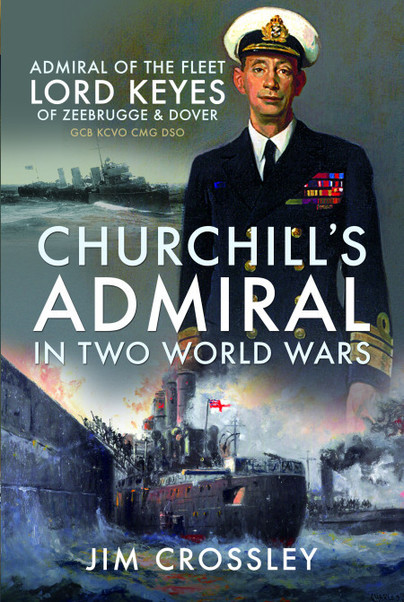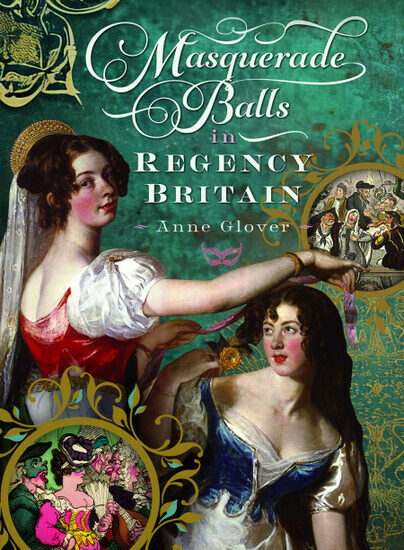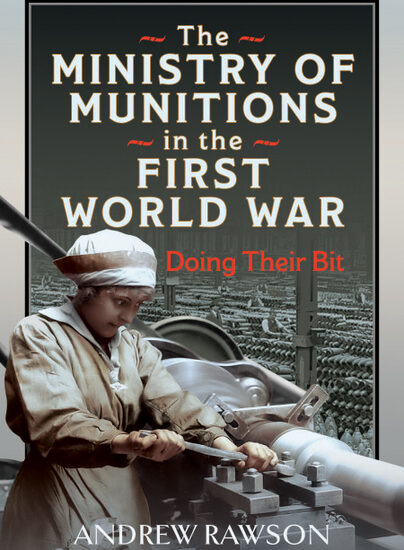Author Guest Post: Jim Crossley
Roger Keyes – Churchill’s Admiral in two World Wars
I had eight relations at the Battle of Jutland. My father was not among them, he was busy working up HMS Resolution a super dreadnaught battleship. The most distinguished of my family’s sailors was Commodore William Goodenough who gained well deserved plaudits for his performance, scouting for the battlefleet and sinking a German cruiser with a torpedo. I’ve never done anything brave like that -actually I have done nothing brave at all, but I have felt a curious affinity for the Royal Navy and I have an enormous admiration for the officers and men who served in it early in the last century. It was no place for milksops. The Commodore and his fellows were brought up under sail. They had to climb masts and fight with flapping heavy canvass a hundred feet over a raging sea. They had to handle small sailing cutters dodging around big ships in gigantic ocean waves. Ashore they were sometimes expected to establish order among frightened or furious crowds, drawing on the authority invested in a Royal Navy officer in those days. It is impossible not to admire the courage and the self confidence of that generation of British sailors.
This is why I find the character of Keyes so fascinating. Slightly built, with a damaged arm and uncertain health he performed as a naval officer of the time was expected to perform. He was brave as a lion and became a magnificent seaman, astonishing his superiors by proving that small destroyers could be deadly to battleships, even in heavy weather. He was a tireless worker, playing a vital part in the evacuation of the Gallipoli Peninsula, while at the same time challenging what he believed to be wrong decisions by his chief. As Admiral commanding the Dover Patrol he played a major part in blunting the U-boat menace. But there was something else about Keyes in particular. He seems to have actually required danger – to have deliberately courted it. He never lost his schoolboy’s love of a “dare” and he couldn’t stand other people’s reluctance to take risks. In some ways he never grew up.
Churchill, who was wont to describe himself as “A Naval Person”, came across Keyes first as a submariner then as a loyal supporter in his struggle to continue the Gallipoli campaign. Personally he liked and admired Keyes, regarding him as a model naval officer. He valued his honesty and directness, which provided such a contrast to most of his political friends. As World War II progressed he quickly realised that Keyes was too old for the active role he longed to perform and had none of the subtlety required for an administrative position. Churchill was disappointed in his friend’s performance in the roles he assigned to him, yet he still valued his friendship, his kindness and his enthusiasm, his straightforwardness and his lack of deceit. I believe that the influence of Keyes on Churchill was stronger than is often realised. The great man perhaps wished that he personally could have shared more the old sailor’s inherent decency and integrity. At Keyes’s funeral he said –
“For more than thirty years I was one of the Admiral’s closest friends……there radiated from him the Commando spirit to which we owe so many glorious episodes…in many ways his spirit and example seemed to revive in our own stern and tragic age the vivid personality and unconquerable, dauntless soul of Nelson himself”.
William Goodenough, who died twelve months earlier, would have agreed heartily.

Churchill’s Admiral in Two World Wars is available to preorder now.

